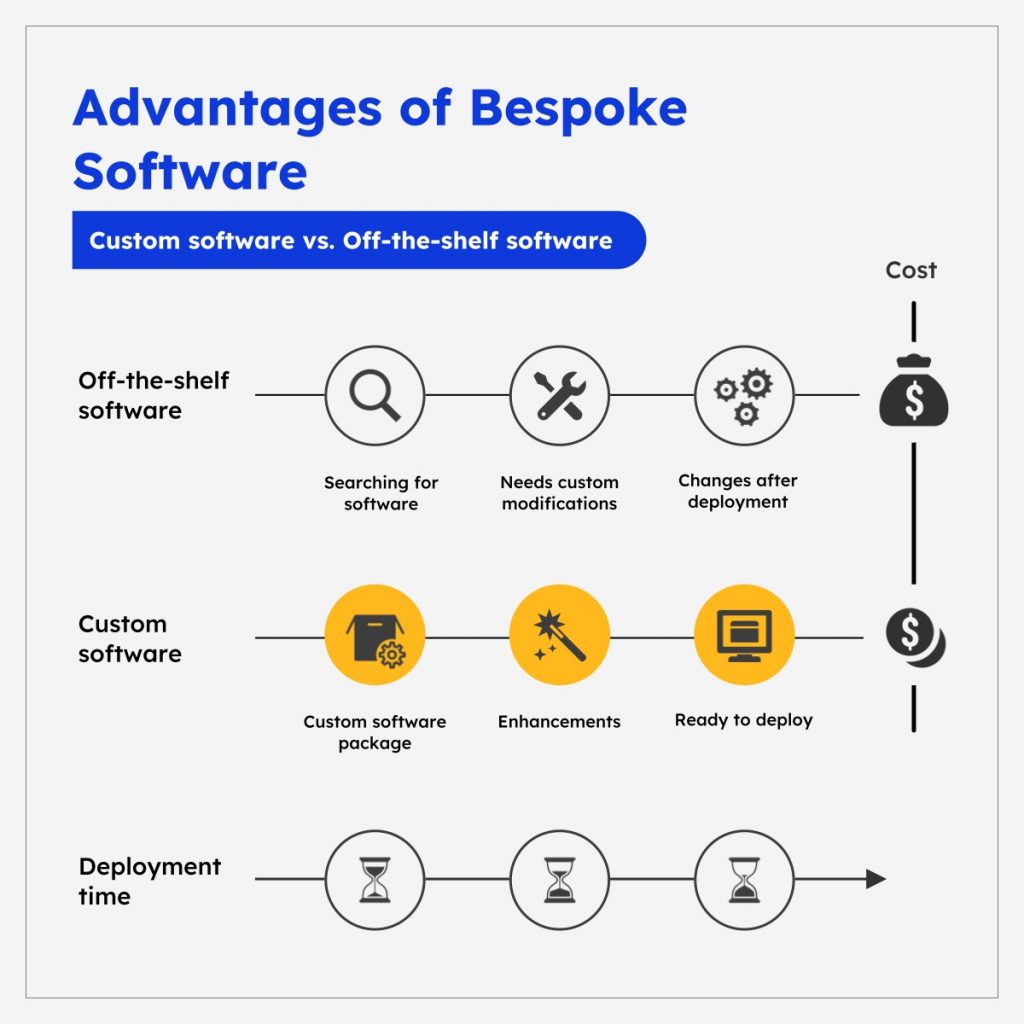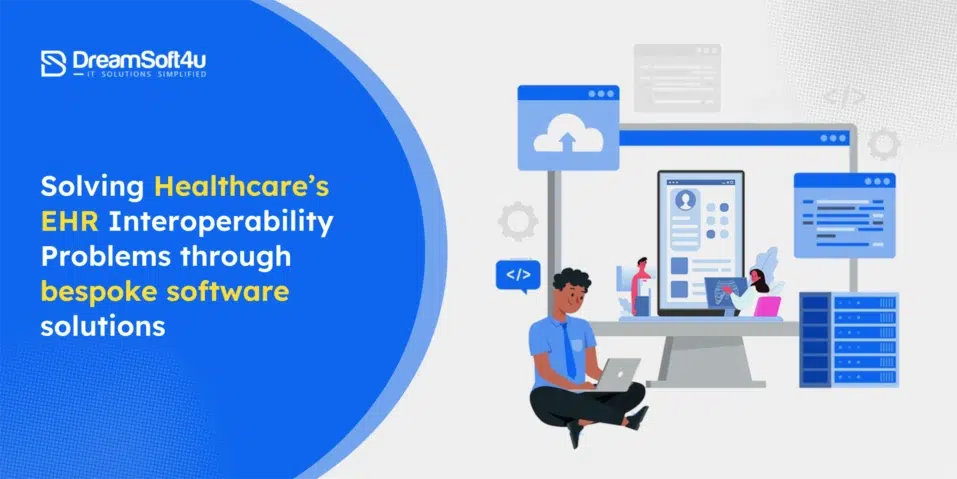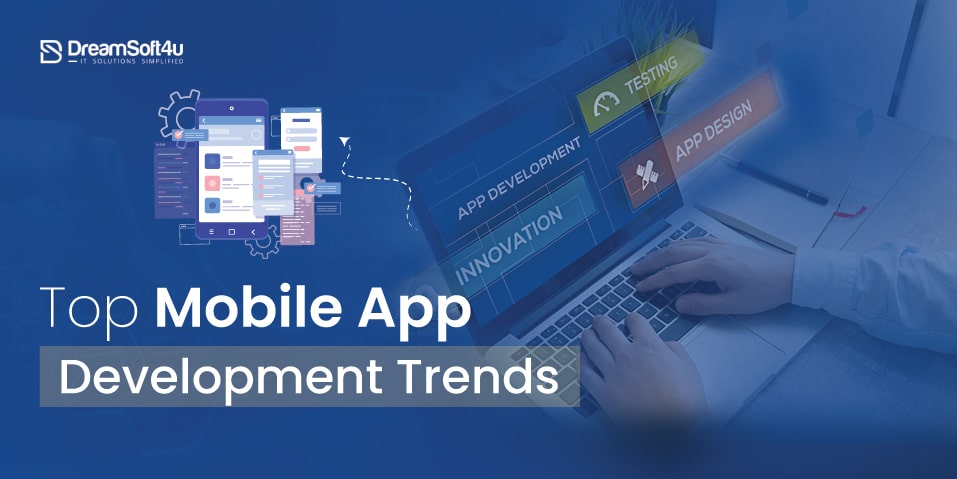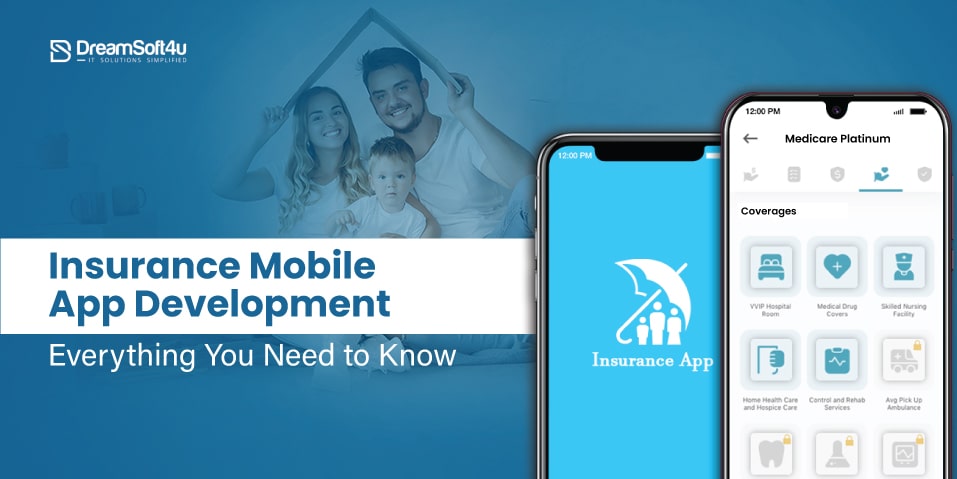Wouldn’t it be great if patient health records could just follow doctors around? Back in the days when EHRs were first introduced they were supposed to make patient record management hassle-free. But this hasn’t been the case. EHR interoperability from different software vendors often can’t talk to each other, making it hard for doctors to get a full picture of your health.
But there’s hope. With bespoke software solutions, such as middleware software for EHR, providers can bridge the gap between different EHR systems. Custom integrations between EHRs help to create a seamless flow of health data so doctors don’t have to be the ones carrying around patient records from place to place. For both doctors and patients, solving this healthcare puzzle could make a world of difference.
Table of Contents
ToggleThe Need for Custom Healthcare Software and Middleware
The healthcare industry desperately needs custom software solutions to solve the interoperability problems of electronic health records (EHRs). The current one-size-fits-all Electronic Medical Records systems just don’t cut it for many practices and hospitals.
EHRs from different vendors can’t easily share patient data, creating information silos. Doctors and staff have to manually enter patient details, test results, and more each time a patient sees a new provider. This wastes time risks data entry errors, and prevents a complete view of the patient’s medical history.
Custom healthcare software development companies and middleware are the answer. They can integrate various EHR systems, enabling the secure exchange of patient records between providers who use different EHR platforms. This gives doctors a more holistic understanding of a patient’s health and medical background.
What exactly is Middleware?
Middleware software development plays a crucial role in solving healthcare’s EHR interoperability problems. Think of it as a glue that connects different healthcare interoperability systems.
With custom middleware software, providers can seamlessly communicate and exchange health data. It helps overcome the challenges of integrating disparate health information systems and achieving interoperability.
Some options for integration include:
- Custom APIs that pull data from multiple EHR integration systems into a single interface. This allows doctors to view information from various sources in one place.
- Bridges that map data from one EHR format to another, so records can be shared between incompatible systems.
- Aggregator systems that extract patient data from different EHRs and normalize it into a standard format for exchange and access.
- Custom dashboards where doctors can see high-level overviews and drill down into detailed patient history across integrated systems.
By investing in specialized healthcare software, practices, and hospitals can overcome interoperability roadblocks, reduce workload, minimize errors, and provide higher-quality care. The benefits to both providers and patients make custom solutions worth the investment.
HIPAA Compliance Software: A Must for Any Healthcare Solution
Any healthcare software solution absolutely must comply with HIPAA regulations to protect patient’s personal health information. As a developer, you’ll need to build safeguards to keep data private and secure.
To start, implement role-based access controls that only allow authorized users to access, use, and disclose the minimum amount of PHI necessary to do their jobs. This ensures that doctors, nurses, and admin staff only see information relevant to them.
You’ll also want to put security measures in place like data encryption, activity logging, and two-factor authentication. Encrypt sensitive data both in transit and at rest. Maintain an audit trail to track who accesses records and when. And require two-factor authentication for users to log in, like a password plus a security code sent to their phone.
Policies and procedures must be documented in case of an audit. Things like a risk management plan, security controls, and incident response procedures should all be clearly outlined. And don’t forget about employee training! Anyone handling PHI needs to complete HIPAA compliance and security awareness training.
Lastly, make sure patients understand how their information may be used and disclosed, and obtain their consent. Your software should allow patients to view details about who has accessed their records and make corrections as needed.
By building safeguards for data privacy, security, and consent, you’ll create healthcare solutions that comply fully with HIPAA’s Privacy and Security Rules. The result? Software physicians and patients alike can trust.
Key Features of Bespoke Healthcare Software
Custom healthcare software services is designed to fit your organization’s specific needs and workflows. They are built from the ground up based on your input and requirements. Some of the key features include:
Seamless Interoperability
Bespoke software allows for a free flow of patient data between departments, providers, and technologies. Hence, information is available whenever and wherever it’s needed.
Intuitive Interface
The interface is designed around how you and your staff work. Instead of wasting hours getting your head around the tool, you can navigate it almost intuitively and save valuable time.
Robust Reporting
You get a 360-degree view of your operations and patient care with reports tailored to your priorities. Use the data to optimize resource allocation, improve quality of care, and demonstrate value.
Scalability
Bespoke healthcare software solutions are built to scale. New functionality and capacity can be added without requiring a complete system overhaul or migration to a new platform.
Tight Security
Robust security protocols keep patient data private and secure. Permissions and access levels are granularly controlled based on role and responsibility.
Benefits of Bespoke Healthcare Software Development
Compared to generic EMR systems, custom healthcare software offers significant benefits for your organization’s specific needs.
Cost Savings
Bespoke software eliminates the need to pay for non-essential features. Unlike off-the-shelf products, it also reduces spending on additional modules, customization, maintenance, and system integration.
Improved Interoperability
Software built for your systems and data structures will inherently have better interoperability. It can be integrated with your existing tech stack and easily exchange information with other in-house systems.
Enhanced Efficiency
Tailored software maps directly to your workflows and processes. It has an intuitive interface for your staff and delivers information and tools precisely where and when they need them. This results in a system that is easy to use and helps clinicians and administrators work more efficiently.
Future-Proof Design
Bespoke systems are designed with future needs in mind. They have flexibility built-in to adapt to changes in technology, standards, and your organization’s priorities. Upgrades and new features can be rolled out quickly without being dependent on a vendor’s release schedule. This gives you a robust, forward-looking solution and greater control over the direction of the software.
Improved Outcomes
Software designed around your patients, services, and data allows for truly customized clinical decision support. It can incorporate rules and alerts tailored to your patient populations. Clinicians have insight into patients’ full medical histories and care plans, enabling well-coordinated care and improved health outcomes.
Bespoke healthcare software offers benefits that far outweigh the initial investment. For healthcare organizations looking to gain control over costs, boost efficiency, and improve patient care, custom solutions are the answer to EHR interoperability problems. They provide the best path to optimized systems and data built around your needs.

Finding the Right Healthcare Software Development Partner
Finding the right custom healthcare software developer is key to solving your EHR interoperability challenges. Here’s why DreamSoft4u is the right fit for you:
Proven experience in healthcare IT
We have a proven track record of success developing solutions for healthcare organizations similar to yours.
Expertise in EHR, HIEs, etc.
We have expertise in HL7, FHIR, and other healthcare data standards. We also have certified experts in healthcare cloud computing, artificial intelligence, and application programming interfaces (APIs).
Perfect cultural fit
We understand your specific needs, priorities, and workflows. We have a transparent and flexible approach that allows for adjustments as the project evolves.
Data security and compliance
Any healthcare software must meet HIPAA compliance and data security standards. We have 23+ years of experience with HIPAA-compliant software risk assessments and privacy impact assessments.
Realistic Budget/Timeframes
We discuss budgets, rates, and estimated timeframes to find one that fits your needs. We are always realistic and stay within budget and timeline.
Develop your customized EHR software with DreamSoft4u
In Conclusion
Providing tailored software solutions to address healthcare Electronic Health Record interoperability concerns is a positive step forward. Organizations can overcome long-standing impediments to smooth data interchange and collaboration by adapting solutions to the specific needs of healthcare providers and systems. Custom software development enables healthcare organizations to establish interoperable EHR systems that prioritize data security, compliance, and user experience while supporting the intricacies of healthcare workflows. Furthermore, tailored solutions enable healthcare providers to leverage their existing infrastructure, interface with diverse systems, and respond to changing regulatory needs. As the healthcare industry continues to digitally transition, investing in tailored software solutions is critical to realizing the full potential of interoperable EHRs, eventually improving patient care, and clinical results, and increasing efficiency throughout the healthcare ecosystem.
FAQs
Q1 What are the shortcomings of the EHR interoperability options available today?
The majority of existing solutions rely on predefined formats that might have less potential to capture the variety of data from various EHR systems. Furthermore, they may be costly and need constant updates.
Q2 Can customized software solutions guarantee complete EHR interoperability?
Although customized solutions can greatly enhance data interchange across certain systems, it is still difficult to achieve total interoperability throughout the healthcare industry. Bespoke software, on the other hand, can serve as a bridge to improve communication across various EHRs inside a company or healthcare network.
Q3 Is custom software development for EHR interoperability secure?
Security is critical in the healthcare industry. There are many privacy and regulatory compliances integrated in EHR to provide safety like Data encryption, access control, and audit.
Q4 Is developing custom software for EHR interoperability cost-effective?
The cost of custom software development varies on the requirement and feature integration in the system. However, there are many ways through which investors can focus on developing cost-efficient software for EHR systems.
Q5 How long does it take to produce custom software for EHR interoperability?
The time investment to develop custom software varies depending on the complexity and breadth of the project. A simple and easy EHR system can be developed within a few days if you connect with the best development company.



















